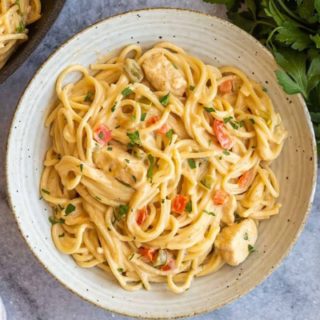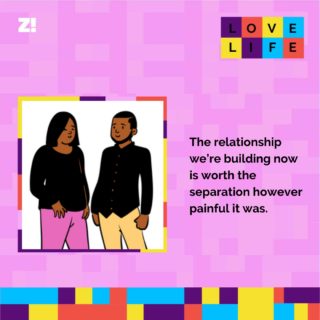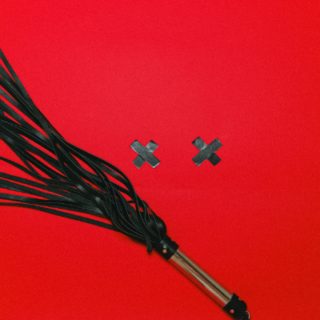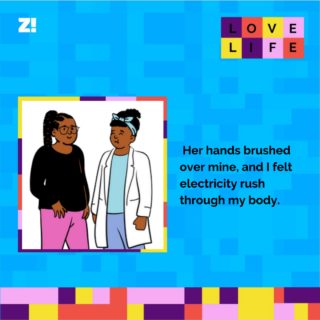The Elevator is a limited Zikoko series that details the growth of young successful Nigerian women. We tell their stories every Monday by 12 p.m.
What do you do when you have several opportunities that could shape the rest of your life? For Arit Okpo, it’s creating a 25-year-plan, but still taking leaps of faith and learning to say yes, even when things don’t go as planned. Arit Okpo is a 38-year-old journalist, voice actor and television host. In today’s episode of The Elevator, she talks about wanting to be a teacher as a child, studying biochemistry in University, working for N20,000 after university, and now, defining success on her terms in her career in media.
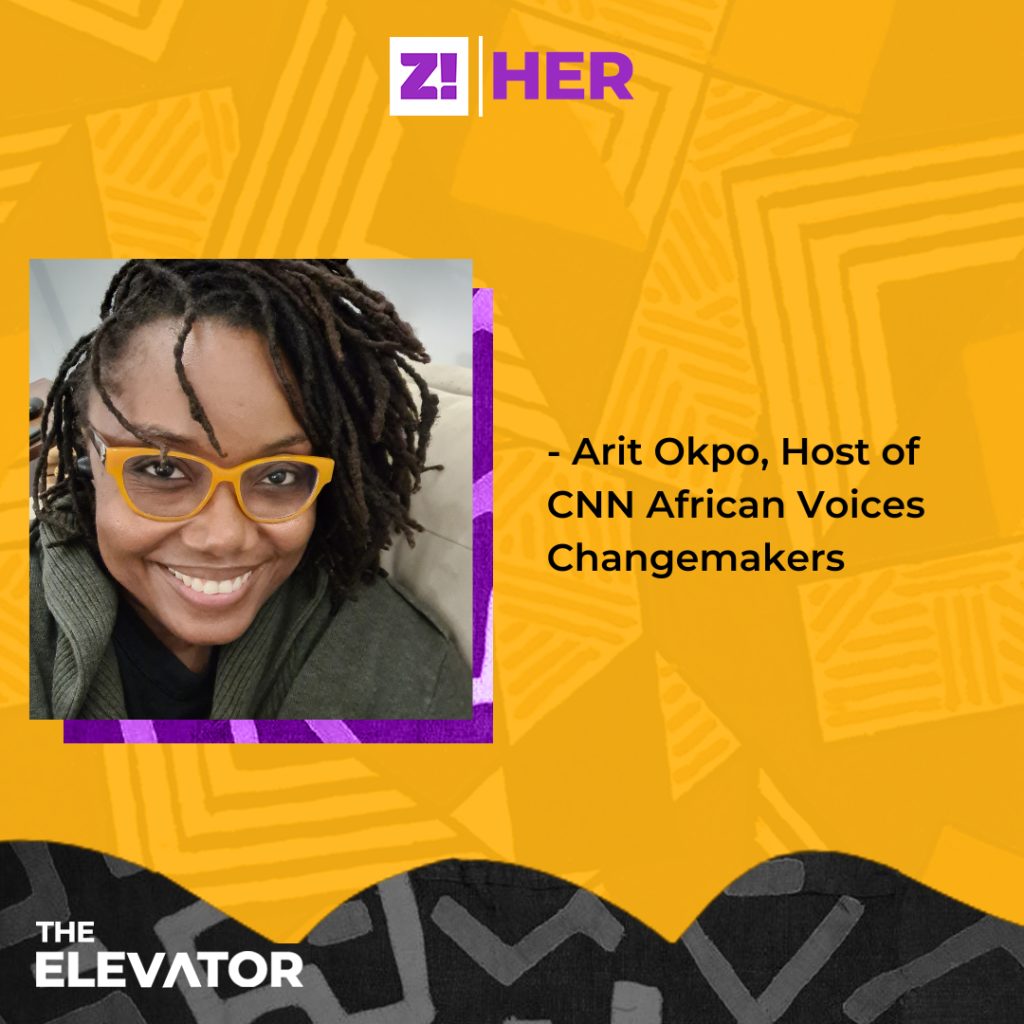
What did you want to be when you were a child?
It’s very interesting. As a child, when people asked, I would always say I wanted to be a teacher or an actress. I’m neither of those right now but I’m doing okay.
How did you go from wanting to become these things to working in media?
In secondary school, I was, unfortunately, assigned to the science and technology class. I have no technological aptitude but I used to be a good crammer. I would cram my notes and give them back to the teacher during exams. This gave my teachers the impression that I was a better student than I was. Sometimes when I walked past the art class, my mates would call me to analyse their literary texts and I would do it effortlessly. Looking back, it’s funny how it never occurred to me to be a part of that class.
That’s how I ended up applying for medicine as my first choice and biochemistry as my second choice in JAMB. I see now that those were not the best options. I got admission to study biochemistry and in my third year, my mom brought up the option of transferring universities to go study English language. This was another divine sign to get my life on the right track but I was consumed by the fact that I was already in year three. I couldn’t imagine starting from the beginning so I said no. I graduated with a biochemistry degree and set out to live my real life.
What was your first job after graduating?
I worked as the PA to a school administrator, which is how I spent some time in education. This was 2005, I had just finished NYSC. I was waiting for my master’s admission, where I was going to study immunology. Maybe if I had stayed on this path, I would have made the COVID vaccine a while ago.
I got the job through my friend’s mom who told me her niece’s daughter was starting a school and needed an assistant. I agreed to do it because it gave me something to do while I waited. I was working on a salary of N20,000. My father was mortified that his child was going to work every day for that amount. He refused to speak to me for a month.
By the time my admission came out, I had been promoted to the school administrator and I realised that I was not only good at what I was doing but I also enjoyed it. So I decided to stay and continue on that path.
How did you eventually make the move to the media?
I’ve always been the sort of person that has multiple jobs at a time. I have been an artist manager, I have worked in a PR firm, I have helped to organise a conference and many other things. I left the school because I had peaked in my journey there and I needed to move to the next level. In May 2013, I wrote a 25-year plan. I wanted to become a school consultant — teach people how to set up schools. While I was at that, I also wanted to study film production because I realised I wanted to get into media. That was supposed to be my side hustle while I continued to set up schools for people. The goal was to become the Minister of Education. By August that year, the plan had turned upside down.
Anyway, I got a call from Mo Abudu. Mo was the executive producer of a reality show that I had been on, called ‘The Debaters’, where we had to pick topics and argue either for or against from the perspective of a skilled observer. I didn’t win that reality show — the judges said I was too conversational. I had chats instead of giving debates. Mo was setting up a news show and she thought I was a good fit as the host. I was about 31. She invited me over to Calabar for a screen test. There, she asked me when I could start and just like that, I had the job.
I had to choose between working as the host of this news show or taking up an offer to head the communications team for an NGO. Also, I was trying to decide if I wanted to go into full-time school consulting. Many times, I think of how any of those options would have led me on an entirely different path. I am someone who is led by my intuition so I chose the EbonyLife TV job because something about it felt right. That’s how I found myself in the media.
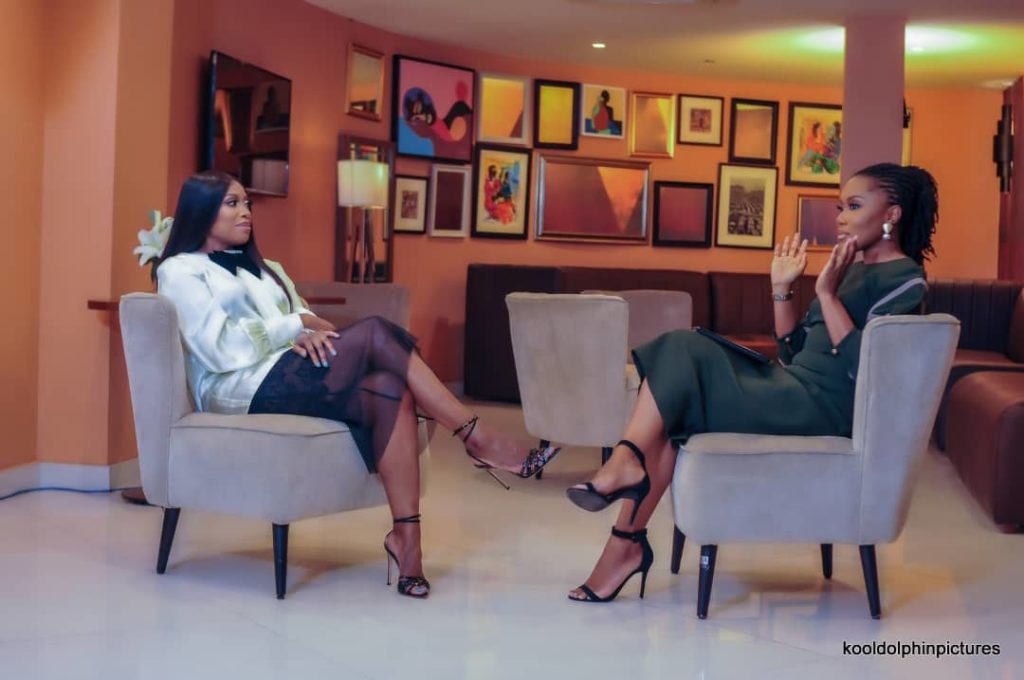
What was working at EbonyLife like?
EbonyLife was a challenging yet motivating experience. The channel was strongly women-led, which was very affirming for me. I was encouraged to function with both imagination and drive – nothing was considered impossible, so even when I was overwhelmed or afraid, I still was expected to push through. It was a valuable lesson in pushing past fear. At the same time, I could always talk to my colleagues, line managers and the CEO to work through ideas, so there was a lot of feedback and support in bringing ideas to life. For the first year or so, I don’t think I had work hours, you were likely to see me just leaving the office at 9pm or exchanging emails with the CEO at 1am.
I had the opportunity to work in front of and behind the camera as a producer and presenter. I carried out interviews and did voiceovers — EbonyLife is where I did my first voiceover. For me, there was a strong sense of being a pioneer where African television was concerned, and I was very excited about that.
How did you move from EbonyLife TV to CNN African Voices Changemakers host?
I worked at EbonyLife from 2013 to 2016. In 2016, I got the point where I realised that I was ready to explore my skills in a different context. So I resigned and decided to go freelance, which was an interesting experience. In 2017, someone reached out to me to do a voiceover for a documentary. I did it and a year later, he reached and said he had submitted my name for the African voices’ voiceover artist role. I didn’t think much of it for some reason, maybe because I’ve never thought of voice-overs as the main part of my career. They were more of a minor aspect of my work.
The producer sent me a script and when I did a recording, he said I was exactly what they were looking for. I had been recording the voiceovers for almost a year when my producer told me that he had found out that I was a TV host. He asked if I would like to do a screen test for the role of African voices host. I was nervous about it but it went well and in 2019, I became the host of African voices. This is also a hallmark of my journey that my biggest opportunities have come from simply saying yes.
How do you mean?
In 2005, when my friend’s mum asked if I wanted to work in a school while I waited for my Master’s admission, I said yes and gained the important administrative and project planning skills that I apply in my work as a producer.
My first experience in production was with a friend who needed an associate producer for a documentary. I said yes and it opened my eyes to the possibilities in storytelling.
When Mo Abudu asked me to come to Calabar to do a screen test, even though it wasn’t in my plans, I said yes and that was my entry to presenting on TV. When I was asked to try doing voiceovers for the channel, I said yes – that yes took me to CNN African Voices a few years later.
When my producer at CNN asked if I was interested in doing a screen test for the host position, I said yes and the rest is history.
I work very hard and I always give my best, but there is also space in my story for recognising opportunities and taking chances. As much as possible, I want to be able to say that when life asked me to jump, I took my leaps of faith. So far, every leap has been yet another opportunity to take flight and soar.
What’s a day like as the host of African Voices?
It’s difficult to talk about a typical day because my work on one day can be different from the next day. We usually do the interviews way before the episode airs. Those interviews have to be edited and scripted so on some weeks, I do the voiceover for the scripts. Other weeks, I do the links – the parts where you hear, ‘Welcome to African voices. In today’s episode, we’re going to do this and that’. Depending on my schedule, I do those two or three days a month while voiceovers could take three weeks. It’s not hectic in the sense that I always have to be on the go but I do have my busy days. This is great because I do a bunch of other things like making documentaries and moderating events.
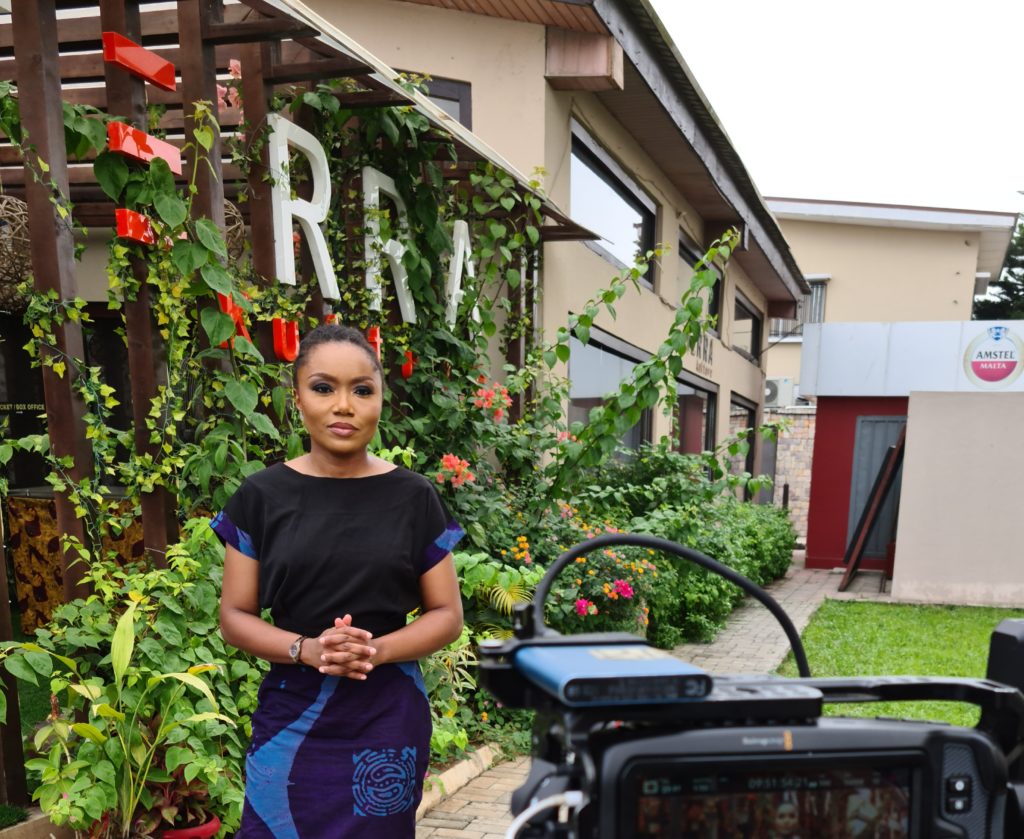
Do you have any favourite projects?
I’m one of those people who don’t have favourites. I think that I’m very fortunate to have identified my skills, my areas of strength, and to be able to deploy them across several projects. My favourite thing about CNN African voices is that we get to tell so many important stories. Many times, the people aren’t necessarily looking for publicity but are doing great work by themselves. I love that when we tell their stories, they can get a boost that comes from being on a platform like CNN.
I’m very measured in how I express myself. I love that voiceovers challenge me to intentionally communicate emotion. Whenever I do a voiceover and I’m pleased because it has been a journey for me. For me, stories are ultimately about people and making documentaries challenge me to think about those people. I like the perspective of being outside a story and bringing it to life. I’m very passionate about what could be turned into a story. There are many things in life that might not seem like a big deal but are nonetheless the realities of a lot of people. Those are the kind of stories I like to tell.
One of my biggest aspirations is to be able to tell women-focused stories and also stories about LGBTQ people, from the context of everyday life. I love the work I have done in telling LGBT stories so far — I hosted a show called Untold Facts for three seasons. I want to continue to do work like that. This is significant for me because, in the stories about LGBTQ people on the continent, there’s either a tendency to represent them purely as victims or to other LGBTQ people. It’s all othering. We talk about LGBTQ rights like they’re these exotic gifts that we are granting to a sub-segment of the population. I want to present LGBTQ conversations as part of our everyday conversations because then it forces people to think about the people in the stories being told. For instance, affirming medical care for LGBTQ people can be alongside reproductive health options. Many times, LGBTQ stories are on an individual platform — which is also important. I enjoy being able to tell LGBTQ stories or to provide opportunities for LGBTQ people to tell their stories. I like that, I get to challenge myself in different ways.
How do you deal with stumbling blocks along the way?
I try to be patient with myself. We tend to measure progress by ease and while ease is important, it’s also important to remember that your path by its very nature will have difficulties. I recognise that sometimes stumbling blocks are a function of where we are. I allow my journey to be a process rather than a destination. This means that I will be patient when it’s difficult and enjoy it when it’s easy.
I feel like “saying yes” or taking leaps of faith is an important lesson from your journey. What else?
I don’t know that I will ever be that camera ready person with a million followers, who is always in the thick of fashion and that’s okay because that’s not who I want to be. So the lesson for me is asking myself what success looks like to me. Identifying that has helped me to be patient when I haven’t gotten certain opportunities because I would ask myself why I want it — is it because I think it’s where I am supposed to be or because it is right for me. I want to be the kind of person who keeps people’s stories safe. People are rarely one thing or the other — people are a collection of things. I want to tell stories that represent the spectrum of human existence — the variables, nuances and texture. I want to do those things as myself and that means being somebody who is at home in the work that she does. I will always be an informal, everyday person who recognises herself in many of the stories that I tell. I also know I will never be one of those TV hosts who stands outside of a story. I will always have feelings and that’s okay. Recognising these details are the things that will make me successful in my way.
If you could talk to your 10-year-old self, what would you tell her?
I think I was ten when I realised that people could be cruel, for no reason other than the fact that they could and it’s a hard lesson to learn as a child. I would say people are going to hurt you and for the longest time, you will let them because you don’t know better but you will find that your softness is its kind of strength, its weapon and its safe place. You will learn how to live in a world where you refuse to let your softness be taken for granted. You will learn how to use that softness to care for those you love. You will learn how to exhibit the fullness of everything that you are. You will recognise that if people are not kind it’s not on you so keep being soft, kind and loving. It will all make sense.
What’s next for you?
I’m in a very interesting place in my life. I have a lot of clarity right now about who I am and how I want to show up in the world. I’m excited about exploring all the ways that will continue to happen. I want to make more documentaries, telling stories I feel are important. I want to make sure I have more agency in the work I do and the opportunities I get. It’s very funny because I know that this is supposed to be where I talk about my work goals but if there’s anything life has shown me, it is that you make plans and God laughs. But I do want to be able to tell stories that people think are not important or noteworthy. I want to make documentaries that reflect women’s histories, LGBTQ people’s realities. and the intricate details of our culture. I want to hold interviews with people who have made small choices that add up to a big life and sometimes a big life might not mean that you are a popular person. I want to continue to identify stories that need to be told and get better at telling them in my most authentic voice. I also want to be able to give back.
Click here to read the previous Elevator story about Celebrity DJ Kiss.
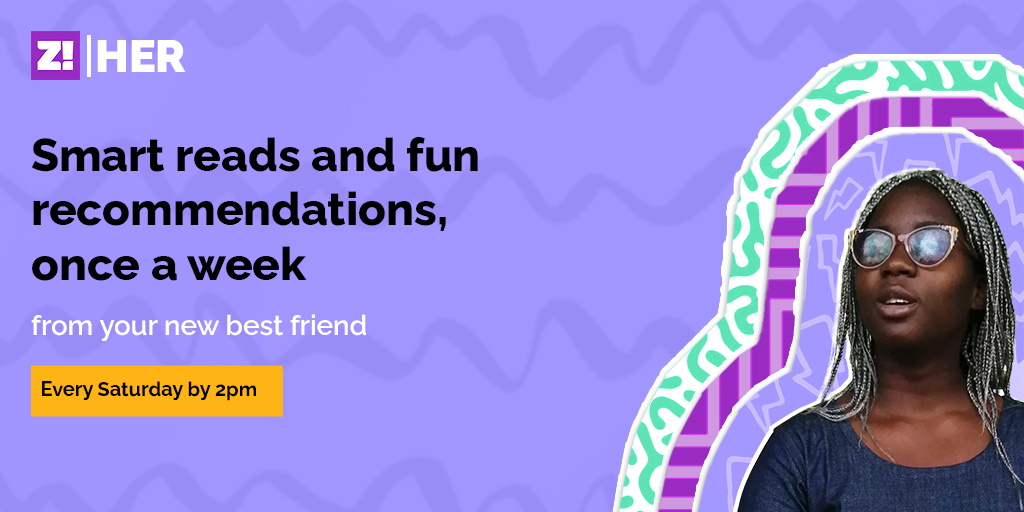
Subscribe here.

